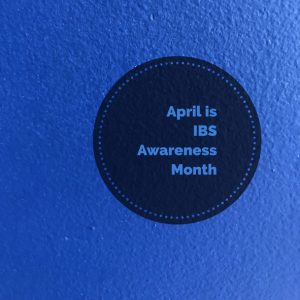Happy IBS Awareness Month!

April is IBS Awareness month! IBS affects about 25 to 45 million people in the U.S. It is important to understand what this condition is and how you can find relief and manage your symptoms.
What is IBS?
IBS which stands for irritable bowel syndrome, a chronic gastrointestinal disorder that affects the large intestine. It causes a group of symptoms that can vary in duration and severity.
What Are the Symptoms of IBS?
IBS symptoms can range from mild to severe. The following are some of the most common symptoms of IBS:
- Pain and cramping in the stomach area
- Constipation
- Diarrhea
- Bloated or swollen stomach
- Gas
- Mucus in the stool
- Feeling too full or nauseous after a meal, even though you haven’t overeaten
What Are Triggers of IBS?
It’s not known what causes IBS, but the following factors may be involved:
- Diet: Certain foods and beverages may trigger symptoms
- Hormones: Such as those that affect women during menstruation
- Environmental Factors: including stress
- Genetic Factors
- Severe Infection: Developing after diarrhea or related to excess bacteria in the intestines
- Abnormal Muscle Contractions in the Intestine: Intestinal contractions that are too weak or strong can cause IBS symptoms
- Inflammation in the Intestines: Having greater than the normal number of immune system cells in your intestines
- Nervous System Abnormalities- Can cause your body to overreact to normal changes in the digestive process
What Foods Should You Avoid?
If you have IBS, it helps to keep a food diary so you can keep a record of foods eaten and their effects to help identify triggers. Common foods to avoid include:
- Processed foods such as chips and cookies
- Dairy products
- Fried foods
- Fatty foods
- Insoluble fibers, such as the skin of fruits and vegetables
- Wheat
- Bread and cereals made with refined grains
- Chocolate
- Coffee
- Carbonated drinks
- Alcohol
- Caffeine
- Fructose - found in honey and fruit
- Sorbitol - an artificial sweetener
What Are Treatment Options for IBS?
Although there is no cure for IBS, your doctor can suggest one or more of the following to manage your symptoms:
- Exercise regularly
- Eat smaller meals
- Take a probiotic- good bacteria you can get in supplements or in yogurts with live active cultures
- Reduce stress
If you’re experiencing symptoms of IBS, make an appointment today with Gramercy Park Digestive Disease Center. Our experienced gastroenterologists can confirm or rule out a diagnosis of IBS and will help you manage your symptoms in the most effective way possible.


